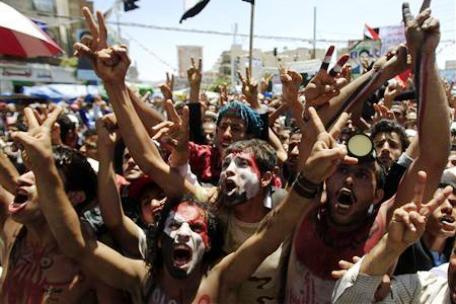Power Mania and Self-Confidence: Saleh Returns to Yemen

While it appeared that another Arab dictator will finally leave the power upon popular demand, Ali Abdullah Saleh pops back on the stage, with an augmented self-confident, most probably a product of strong from Riyadh and Washington. Hasan Hanizadeh reviews the issue with Iranian Diplomacy in this short interview:
IRD: What will the Abdullah Saleh’s position be after entering Sana’a?
HH: The US and Saudi Arabia came up with the return plan to preserve the power structure in Yemen. This is a scheme to be completed with the 2013 presidential election in which a member of Saleh’s family will be elected as the president. The same will most likely hold true about the parliamentary election: only the candidates affiliated with Saleh’s clan, the al-Hashid, finda chance to win. It is a soft transition of power within the old structure. This process shows that the Saudis are afraid of any fundamental change in Yemen’s domestic structure. The transition does not remove Saleh from power.
IRD: How has Abdullah Saleh’s position changed before and after entering Sana'a?
HH: After his return, Ali Abdullah Saleh announced that he would yield power to an elective body and materialize the Gulf Cooperation Council’s initiative for peaceful power transition. But apparently, the Yemeni citizens think that he wants to remain in power when on the eve of his return to the country, conflicts between his loyal forces and the protestors left 120 people dead. These prove that he tries to remain in power for a longer time to escape prosecution.
IRD: If the violence continues, is it likely that the Security Council steps in?
HH: I don’t think so. The UN Security Council, the US, and the West in general, support the GCC initiative and Washington will not sit there to see the Security Council interfere to protect its Middle East interests. Washington thinks of Saleh as the only option in Yemen to root out AlQaeda networks. In the meantime, Abdullah Saleh is trying to engage the Yemeni protestors in a war of attrition, until they finally give up the protests, so he can reenact his plans to transfer power to his son, Ahmed Ali Saleh.
IRD: Can we interpret Saleh’s return as the failure of GCC’s proposal?

